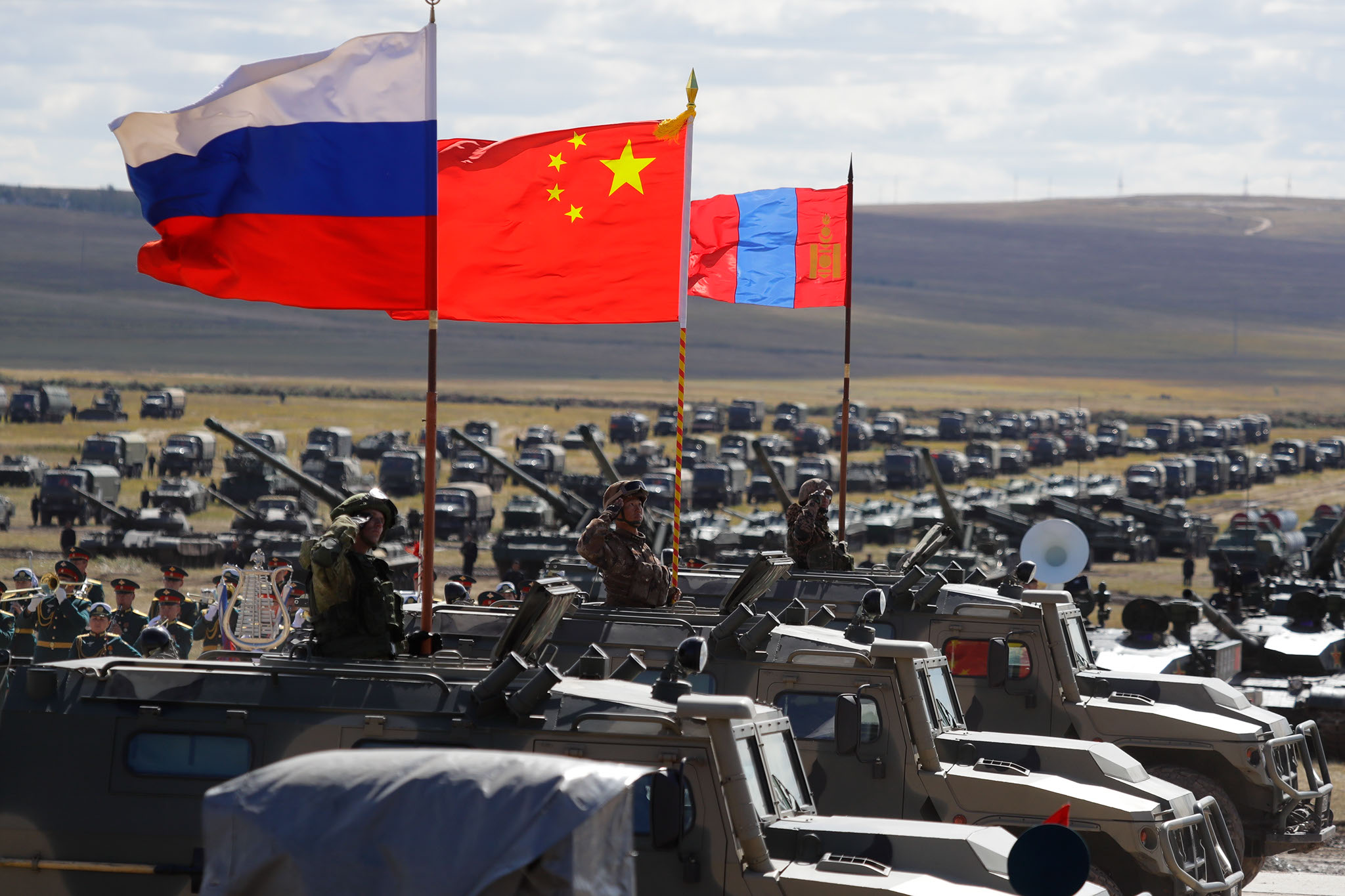Yoselina Guevara
 One of the relevant geopolitical issues of 2021 has been the strengthening of China-Russia relations. A strategic partnership that is the result of Russian policies in international matters, which are aimed at building a multipolar world, in addition to being evidently a counterweight to the U.S. strategy of containment in an open policy against Russia and China. At the same time, the role of the Asian giant, which has given more than concrete signs of its assertiveness in world geopolitics, cannot be ignored.
One of the relevant geopolitical issues of 2021 has been the strengthening of China-Russia relations. A strategic partnership that is the result of Russian policies in international matters, which are aimed at building a multipolar world, in addition to being evidently a counterweight to the U.S. strategy of containment in an open policy against Russia and China. At the same time, the role of the Asian giant, which has given more than concrete signs of its assertiveness in world geopolitics, cannot be ignored.
For its part, the United States is trying to exert pressure on these Eurasian allies on two extremely delicate fronts: Taiwan with regard to China, Ukraine with regard to the Russian Federation. For many experts, this double American pressure has led to a greater strategic rapprochement between China and Russia, not only in the political sphere but also in an even more dangerous area for Washington, which is the military sphere and in which so far they are not formal allies.
 That is why they are now beginning to discuss the “Sino-Russian military alliance”, while their respective fleets are carrying out joint exercises in the Sea of Japan, for example. The United States is trying to manage these situations by maintaining the imperial role it has always played but which in today’s world is outdated, and the only thing it has achieved is an abysmal management performance. There is no doubt that the Eurasian axis is gaining increasing strength and continues to be an alternative geopolitical axis to Washington, now more than ever.
That is why they are now beginning to discuss the “Sino-Russian military alliance”, while their respective fleets are carrying out joint exercises in the Sea of Japan, for example. The United States is trying to manage these situations by maintaining the imperial role it has always played but which in today’s world is outdated, and the only thing it has achieved is an abysmal management performance. There is no doubt that the Eurasian axis is gaining increasing strength and continues to be an alternative geopolitical axis to Washington, now more than ever.

Concerted diplomatic alliance
China and Russia are not only tending to deepen their strategic cooperation, but have also begun to work together diplomatically. On December 6, Russian President Vladimir Putin made an official trip to India, an event that came as a surprise because it took place in the midst of the pandemic with the arrival of the Omicron variant of Covid-19. It can be asserted that this trip to Delhi was of utmost importance for Putin given his continuous absences during this year in international summits and suspensions of official visits, repeatedly using the virtual connection. The results of the Russian diplomatic mission in India were, above all, in military matters. Putin and Modi’s confirmation of agreements on advanced Russian missile systems. Delhi reiterated the purchase from Moscow, despite vetoes and threats of sanctions from the United States, with which India would be underhandedly aligning itself with Russia and China.
For some specialists the objective was clear, in addition to the arms negotiations, Putin would have taken a message from Xi Jinping to Modi, which would be focused on encouraging the resumption of border negotiations between China and India, thus trying to distance Delhi from Washington’s influence. For India, relations with China are of the utmost importance, almost vital from an economic and regional geopolitical point of view. Russia, for its part, wants to bring India closer and is counting on China’s support in this approach, which partially blocks the anti-Russian and anti-Chinese international policies of the United States.
Russian gas for China but not for Europe
Shifting from India to the cold winter of the old continent, as Russian gas supplies to the European Union dwindle, the Russian Federation’s state energy company Gazprom announced on Monday, December 27, that it had set a new all-time record for gas deliveries to China through the “Power of Siberia” pipeline. This strong and growing alliance at the energy level is not a novelty, in November this year both countries signed twenty agreements during the III Russian-Chinese Energy Business Forum. In this field Moscow-Beijing have built numerous cross-border oil and gas pipelines, as well as started work on two Russian-made reactors, which will be installed in nuclear power plants in China. This shows Moscow’s crucial role as a source of low-cost energy resources, reducing Beijing’s dependence on imports from Africa and the Middle East via the Indian Ocean routes.
By now the Asian giant seems to have forgotten the years when Russia deprived the Chinese empire, then on the verge of collapse, of a considerable part of the territory north of Manchuria and favored Mongolia’s independence. Now China is returning to a balance of power, which, without being identical, has many traces of the geopolitical dynamics that developed after the end of World War II, when the dualism between the United States and the Soviet Union took shape and Mao founded the People’s Republic. At that time, Beijing aligned itself with the Kremlin, not only because of ideological affinity, but because of the common need to contain U.S. influence. However, at this moment the conditions are almost completely different, the history and the path on the global geopolitical chessboard is yet to be written.
Yoselina Guevara López Correspondent in Italy